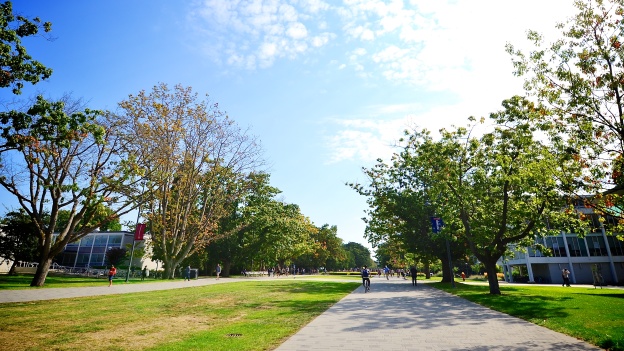This article originally appeared on the CUPE 2278 blog. Minor edits were made.
Admittedly distracted by the second longest federal election cycle in Canadian history, I only today ran across a Ubyssey article, now three weeks old, containing a truly disappointing piece of bizarre commentary that decries the very existence of CUPE 2278, the UBC teaching assistant’s union.
Why would I care? Well, after seven years of graduate work, I finally received my PhD in Mathematics this past May from the University of British Columbia. As a graduate student, especially in the Department of Mathematics, teaching was an integral part of my work life. I worked as a teaching assistant for all seven years in the department, and for several years before that as I attended graduate school and completed my undergraduate degree at other universities. I have also served for three years in varying capacities on the executive of CUPE 2278. Today, I am a sessional lecturer in the Department of Statistics at UBC, and a member of the Faculty Association, who works closely on a regular basis with UBC teaching assistants.
The salvo in question comes from the mouth of someone who should most certainly know better: Jenny Hoffman, former Harvard faculty, a new UBC faculty member in the Department of Physics and Astronomy and an exceptional scientist. She is profiled in this Ubyssey article from October 6th, discussing her passions inside and outside of the workplace. But oddly, Dr. Hoffman also seizes the opportunity to attack the UBC teaching assistants’ union. Per the Ubyssey‘s article:
Hoffman emphasizes that she is grateful to be here. But the scientist chafes at UBC’s teaching assistants’ union, a point she raised early in the interview.
“TA-ing should be considered a course not a job. There should be no union to try and reduce their hours,” Hoffman said. She added that she saw the attitude of CUPE 2278, the TA’s union on campus, as a cultural difference. “I’m coming from a place where people love their jobs,” she said.
Ironically, I borrow from the great physicist Wolfgang Pauli when I categorize Dr. Hoffman’s statement as so off-base, it’s not even wrong. Is she seriously suggesting that TA work is not a job? Conducting lectures and tutorials; marking papers, exams, and lab reports; meeting with students; assigning grades; teaching. According to her glowing Ubyssey profile, she “sees her primary commitment as being toward students,” and I am confident in inferring that she considers that commitment part of her job. Or is it only a job once you have a PhD?
When declaring that no TA union should exist “to try and reduce their hours”, Dr. Hoffman seems completely oblivious to the fact that she is a member of the UBC Faculty Association, “a voluntarily recognized union” with a collective agreement that outlines all manner of relevant issues, including the dynamics between remuneration and hours worked. Is this union somehow different in its claim to legitimacy than the TA union in Dr. Hoffman’s eyes? To her, it seems, I was but a lowly TA last academic year, but now I have been granted legitimacy by the initials “Ph.D.” after my name, and lo, when I step into the classroom tomorrow I will be justified, a real teacher, not merely a scholar in training.
I can’t help but settle on the conclusion that Dr. Hoffman seems to be insinuating that work is only real work once you’ve been granted the proper credentials. And only real workers deserve a voice; any graduate and undergraduate TAs who think otherwise are just people who dislike their jobs apparently. This kind of crass elitism is why some people harbour the perception that academics are out-of-touch, and are so singularly minded that they can’t be bothered with reality outside the confines of their own laboratory. Claiming that the collegiate culture at UBC is so different from Harvard, “a place where people love their jobs,” just feeds this narrative of clueless elitism.
What Dr. Hoffman misses here is that teaching assistants do love their jobs, and that’s why they want to protect them. Groups of workers with like interests do not form a union because they dislike their jobs; they do so because they want to be able to support themselves in those jobs. They want to be remunerated appropriately, they want to be respected for their labour, they want to rest assured that their jobs will not vanish tomorrow on the whim of a superior. They want to support themselves doing work that they love. That’s why UBC’s excellent Faculty Association has secured things like minimum salaries, transparent promotion and tenure procedures, and pension benefits for its members. CUPE 2278 has every much a right to secure for its members minimum wages, terms of appointments and reappointments, and maximums on hours worked.
Or if Dr. Hoffman really thinks I’m wrong, maybe she is prepared to follow through with her volley and question the legitimacy of the Faculty Association to which we both belong? Surely though, if she takes a minute to think it over with PhD in hand, she will recognize that this proposition too must be classified as not even wrong.
Edward Kroc
Sessional Lecturer
Department of Statistics, UBC




